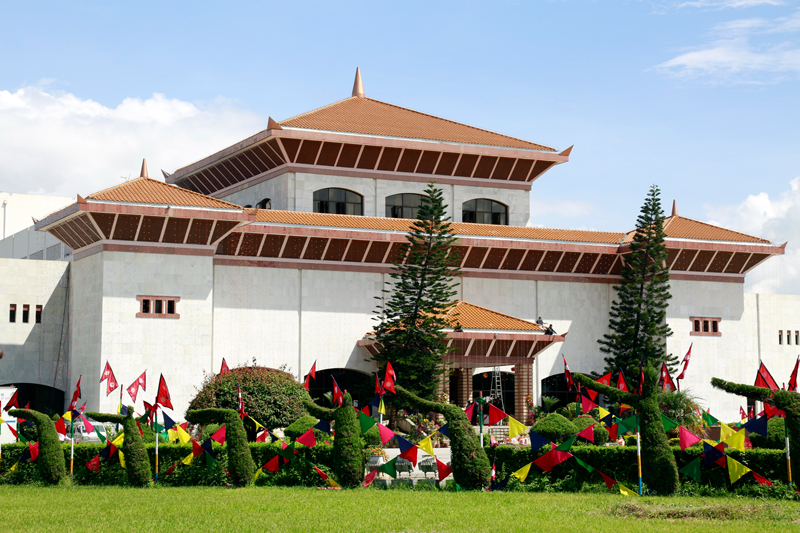Amendment bill registered to address protesters’ concerns
Kathmandu, October 7
Seventeen days after the Constituent Assembly promulgated new constitution on September 20, the government today registered “first amendment bill” of the constitution at Parliament Secretariat, seeking to address proportional inclusion and making population the basis for delineating the electoral constituencies – the two major demands of Madhesi and indigenous communities.
However, the agitating parties have been demanding to determine the boundaries of federal units to make at least two separate provinces by covering the entire Tarai-Madhes region.
The amendment bill, however, does not include the boundary issue, as three major parties — Nepali Congress, CPN-UML and Unified CPN-Maoist — have been saying that it could be addressed through a federal commission, to be formed as per the provision of the new constitution, that will make recommendations on it within one year.
The bill registered by Minister for Law, Justice, Constituent Assembly and Parliamentary Affairs Narahari Acharya seeks amendment to five provisions of Articles 42, 84 and 286 to address the two issues.
“The government has registered the bill as per Prime Minister Sushil Koirala’s commitment made in the CA on September 13. As top leaders of the three major parties have already expressed commitment to make the amendment, I hope the Parliament will pass the bill,” said Minister Acharya.
The bill will be tabled during the Parliament meeting scheduled for October 9. It takes a minimum of 11 days to pass a bill if all procedures are followed after tabling it, as there are several steps, including providing three days to lawmakers for registering their amendments on such a bill and holding discussions, according to Speaker Subas Chandra Nembang.
A bill on constitution amendment should be published (through gazette) within 30 days of its tabling at the Parliament to inform the people about it, according to Article 274 (3) of the new constitution.
If the proposed bill is passed, the participation of underprivileged groups will be ensured in state organs as per the principle of proportional inclusion in Right to Social Justice of Article 42 under the fundamental rights. This is a demand raised mainly by the indigenous communities.
Also the Tarai-Madhes region will be allotted with nearly 50 per cent of 165 electoral constituencies after the passage of the bill.
Asked about the amendment proposal, Federal Socialist Forum Nepal Chairman Upendra Yadav said, “We have not been informed about any amendment bill, so we cannot say anything on it right now.”
Proposed amendments
• Article 42 (1): “on the basis of proportionate inclusion” instead of “on the basis of inclusive principle”
• Article 84 (1) (a): “on the basis of population and geographical congeniality and specificity” instead of “on the basis of geography and population”
• Article 286 (5): The Constitution Delimitation Commission will delineate electoral constituencies on the basis of population and geography as follows:
(a) To make the proportion of population and number of members (of parliament) equal as far as possible by making the population the major basis
(b) To retain at least one constituency for each district that existed during the time of promulgation this constitution
• Article 286 (6): To add “population and geographical congeniality and specificity” following the terms “while delimitating electoral constituencies”






